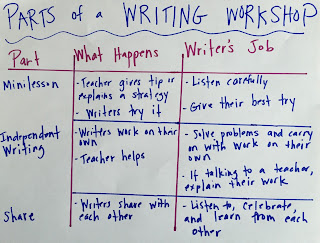I talk a lot about the advantages of writing workshops, sharing your work with others and getting creative feedback. Of course, the flipside to this that is equally beneficial is reading other peoples' works, thinking about constructive improvements, and providing feedback. These two parts of the workshop routine will help us grow as writers without question. However, there are times we will encounter problems, and some in particular are great opportunities to really up our game.
Just like how writers have specific genres that they prefer to write, and readers tend to lean toward particular subjects or styles, we all have our preferences. Given the choice, we will read and write things we are comfortable with, and that goes for critiquing pieces in a workshop. If your favorite subject is horror and someone brings a horror story to the workshop, well, it's going to be a good day, isn't it? You will have a lot to say and a lot to contribute. However, this has a dark side, and it's when people bring a piece that you have utterly no interest in, or worse, are opposed to. This is where we need to up our workshop game.Essays can be flashpoints for any workshop, especially if the person is defending a point that you do not support. This will often tempt us to critique the person's position rather than the writing, which takes us away from the purpose of the workshop - strengthening our writing. I would occasionally put on my economist hat and write an essay explaining how some theory functioned in society or the downside of certain policies - you know, boring economics stuff. I would try to make the writing relatable and interesting (not an easy task), and take it to the workshop to find ways to get readers to connect to the material. This is where things got ugly.
Quite often, the critiques I received were along the lines of, "I don't think that's right," "My candidate says this isn't true," or "I believe something else." While these critics clearly have different viewpoints, their failure was in offering opinions about the subject while not critiquing the writing. This is an easy trap to fall into and difficult to escape. If someone writes an essay supporting communism, our first impulse might be to immediately argue against communism. This is debating, not critiquing, and it doesn't help anyone improve. Worse yet, if the two people in that workshop begin debating their sides, nobody in the workshop benefits as a writer.
The way to get around this little problem is to tell ourselves, "I disagree with this. Now let's focus on the writing." It might feel very unnatural to try to find a way to improve the writing of an essay you don't agree with, and that's fine. The secret is to think of yourself as a writer and nothing more (well, maybe an editor as well). Focus on the principles of structure, of establishing a setting, a position, etc. When you find yourself drifting toward that mindset of, "Wrong! Wrong! Wrong!" then double down and focus on the words and sentences. The best thing you can do for that writer is helping them write stronger pieces. After the workshop, feel free to give them a PoliSci 101 lecture. But while you are in that workshop, make people better writers.


No comments:
Post a Comment